What’s the difference between Butane and Propane?
What’s the difference between Butane and Propane?
Operating temperature is the main difference between Propane and Butane gas. Butane will stop working at around freezing and Propane will work till about -40degree Celsius (-40 degree Fahrenheit). Propane is suited to colder climates and Butane works well in warm climates.
If you are using gas indoors then use Butane, the cylinders are less pressurised and it makes me feel safer sitting next to one. If you are using gas in any type of cold weather and the bottles are outside then use Propane.
Which Gas Should I Use In My Motorhome?
Basically, this is down to where you live and if you are going to do any winter camping. If you enjoy some time camping in the winter and you live in a cold place, you will want Propane.
If you try to use Butane and the temperature is below freezing Butane will not be able to turn into a gas. So when you turn on your gas appliances it will look as if you have run out of gas, even if the gas bottle is full.
Temperatures above zero and Butane will work just fine, you shouldn’t have any problems.
Propane will work until around -40. If the temperature is below -40 you are camping in the wrong country.
The problem we had with Butane is when the temperature drops below zero that is when you need gas the most, for your heaters. Bit of a nuisance if the gas doesn’t work.
Most motorhomes in the UK and will have Propane.
Which gas is cheaper Butane or Propane
Butane is a bit cheaper than Propane which is why people tend to use it. In the UK the difference is negligible for being able to use your gas all year. For our motorhome, we use propane all year round. The reason we don’t have both is that you need a Butane regulator and a Propane regulator. I find that it’s easier just to have the one system to deal with. I did use both propane and Butane for a while but was a bit mental so Propane it is.
Which is hotter, Propane or Butane?
There seems to be a lot of debate about which is the hotter gas and one does burn hotter than the other but not by much.
Propane burns at 1980°C (3596℉) in air
Butane burns at 1970℃ (3578℉) in air
So as you can see there is really very little difference in it. You are really not going to notice a difference
The reason there is a bit of debate is that Butane has a higher calorific value than Propane per litre. So for every litre of Butane, you get more energy than you would Propane. Simple. Well, no.
In the UK when you buy a gas bottle the contents are measured in Kilograms and it just so happens there are more litres of Propane in every kilo than there is in Butane due to the different densities of the gases.
So there is more energy in 1kg of propane than there is in 1 kg of Butane. But, there is more energy in 1 litre of Butane when compared to 1 litre of Propane.
Confused? Don’t be. There is very little difference between them. They can both boil a kettle and make your toast. Whether one does it quicker than the other is debatable.
One thing I know for sure – Propane boils a kettle way faster than Butane when its -5℃,
Does propane Last longer than Butane
From our own experience, they both seem to last about the same time. We have not really noticed a difference between the two gases.
Butane can last for months in the winter but that’s only because you can’t get the gas out of it when it gets chilly.
Our preference is the Propane (I may have mentioned that) which does a great job in the winter when we need it most. The Butane we used was a bottle left over from camping. We have the regulator for both the butane and the propane, all seems to work but never really noticed a difference though, maybe I am wrong about that.
What’s the point of Butane?
If Butane is almost the same price, burns at a very similar temperature, what’s the point of even having the choice?
Butane is stored at a quarter of the pressure of Propane so is much more suited for indoor gas uses and camping. Propane with its high pressure needs a bit more respect and is usually used and stored outside. This makes Butane a safer alternative for space heaters and camping gas where users will be close to the bottles.
Propane is more for heating homes where the bottles are stored outside or in a motorhome where the gas storage area is separate from the living area.
Once you get your gas bottle and fit it in your motorhome. How do you know how much gas is left in the bottle?
How do you tell how much gas is left in the gas bottle?
Once you decide on the gas you want to use how can you tell how much gas is in there? This is quite tricky to determine, though you wouldn’t think so.
Originally I got a pressure gauge that lets you know roughly if there is any gas in the bottle. That is basically all it does – it lets you know there is gas. It can’t tell you how much gas is there. A pressure gauge is useless.
The best method to use to give you an accurate reading is to measure the weight of the bottle when you get it. Our bottles are 11kg – this means there is 11kg of gan in there, the rest of the weight is the bottle itself. So if you assume that there is actually 11kg of gas you just have to weigh the bottle, subtract 11kg and that will be the weight at empty.
For example, our bottle is 11kg of gas, total weight is 24kg so when the weight is around 13kg we know that bottle is getting very close to empty and will change before the next trip.
Now sometimes bottles are strapped in or hard to get in and out. Another method and my personal favourite is to use a mug of warm water. Pour the water down the side of the gas cylinder and then feel the metal with your hand. You will feel a temperature difference, it will be cooler where the liquefied gas is sitting and that difference is the level of gas in the cylinder.
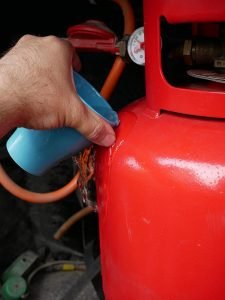
In the winter I noticed that sometimes a layer of frost would form on the gas bottle right where the gas was sitting and this lets you see easily exactly how much gas is in there. This only really works in the winter though.
Most of the gadgets you can get for seeing how much gas is in your bottles are either rubbish or expensive. To date, I have not used a decent one that has beat the simplicity and ease of warm water on the side of the gas cylinder. Let me know if you have tried anything better.
Why is a pressure gauge useless for determining how much gas is in the bottle?
Pressurised gauges are good for measuring how much gas in a pressurised gas bottle, like diving bottles.
Propane, Butane and LPG bottles don’t have pressurised gas in them, they have liquefied gas. Liquefied gas means that the pressure is affected by the temperature and not the quantity of gas. The pressure will remain constant until the bottle is empty.
This explains a lot for when I tried to use the gauge to determine how much gas was in the bottle. It was all over the place, some days it was full, other days nearly empty. Took me a while to twig that on the cold days the pressure was way down compared to warm days. So in the summer it always looks like you have plenty of gas. Those pressure gauges are in fact useless. Don’t be tempted to by one. The pressure of your gas bottle will not let you know how much gas is in there.
Where does LPG fit into this?
LPG in most of Europe tends to be Propane or a Butane Propane mix. In the UK its about 95% propane, 5% butane. Some places in Europe the mix could be 50/50. Although Butane is classed as an LPG it is not used in its pure form in petrol stations where you can buy LPG mainly because of its poor performance below freezing. Mixing Butane with Propane lowers the working temperature, making it usable in freezing conditions.
Most modern motorhomes and a lot of older ones have swapped over to LPG. LPG tends to be much cheaper and more convenient as you can just fill your bottles in a petrol station.
We have been thinking about the conversion which makes sense especially in Europe where each country has its own type of gas bottles with incompatible valves. With LPG all you need is a set of adapters for the petrol stations and you are good to go. Worth thinking about if you are going to be doing any travel in Europe.
Why Would you Have LPG in your Motorhome?
Having gas bottles is a great way to heat and cook in your motorhome but if you are going to spend some serious time in your motorhome and do a good amount of travelling then I would definitely consider getting an LPG system fitted. You would save a lot of money.
I have just recently swapped my propane bottle over at a cost of a few pence under £30. That is for 11kg of gas.
LPG is bought by the litre and not in Kilos. There are 1.96 litres of propane in every kilo.
So 11kg = 11 x 1.96 = 21.56 Litres
The cost in the UK as of today is £0.65
£0.65 x 21.56 = £14.01 – a saving of 53%
So at the moment, you can get the same amount of LPG as you would get in a propane tank for under half price (and 65p at the moment is expensive a lot of garages are cheaper). You can see if you use a lot of gas the cost of fitting an LPG system would quickly be recouped, not to mention the convenience of being able to fill up in many garages all over Europe.
I am considering fitting an LPG system, it’s on the to-do list. Will keep you updated if you are interested or let me know some of your experiences with your gas set up.

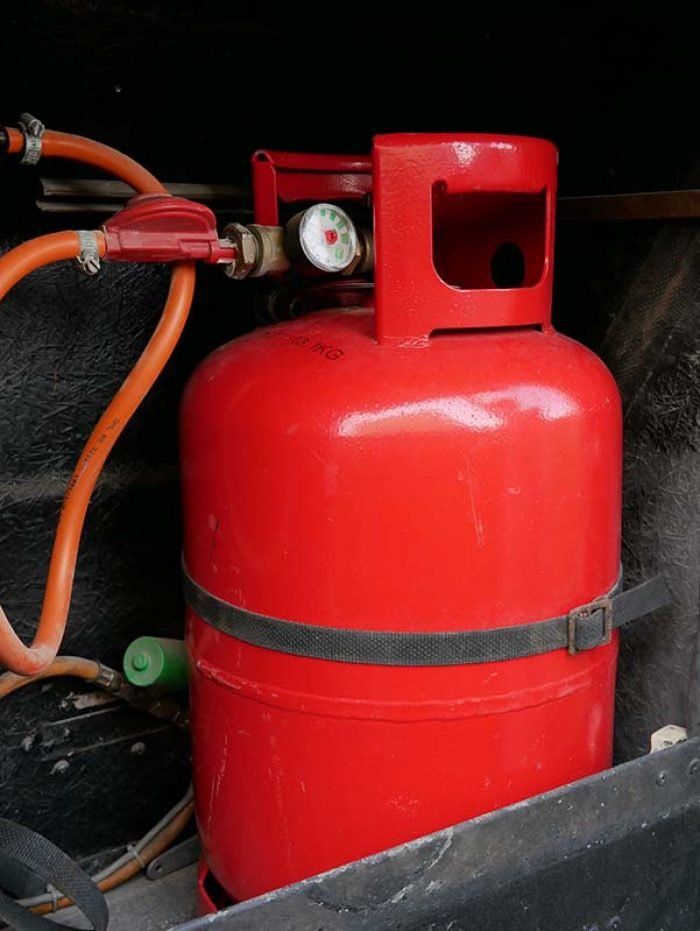
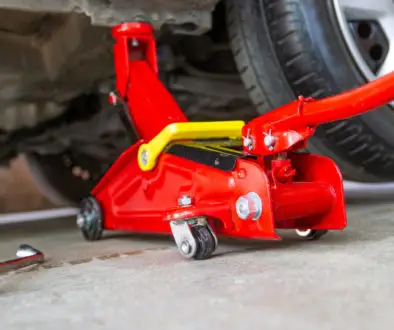
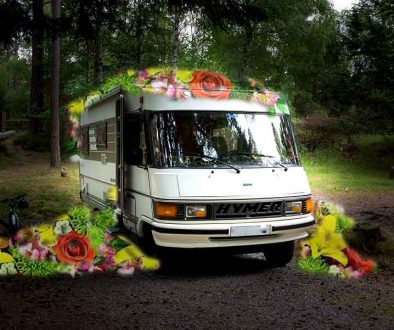
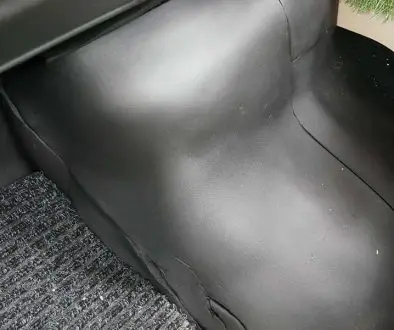
August 6, 2019 @ 06:20
Butane Propane are the important sources for cooking. The difference between those was explained well in this post. Thanks for sharing the blog.
October 18, 2019 @ 20:37
It’s weird, people don’t comment anymore these days, I noticed that on our own site too. So here I am to say: Great article! Very informative (to me at least). And describing your own experiences is gold.
In fact the only thing I missed/was looking for: why do many sites write LPG and Propane is the same, others LPG is the family name comprising both propane and butane, and now you: If you can, get an LPG system fitted, it’s way cheaper than propane (and butane). So that is the bit that, still, confuses me. Although I am sure you could easily explain the difference.
Either way, your site, and the related posts, all great!
April 23, 2020 @ 01:02
I’ve been planning to replace my LPG with propane gas, that’s why I’m currently looking for a service that may provide me that. It’s great to know that propane can last longer in the winter. Although, it surprises me that when propane is combined with Botane, it can lower the working temperature, thus, making it suitable for freezing conditions.
May 14, 2020 @ 10:35
Excellent article, I have both in my RV, just because i bought a refillable bottle when i had a caravan so thats the propane (LPG) great for cold weather ( i did not know ) and as we are in Spain we have Butane as thats what they sell in all garages. Ive just installed 3 x 24v huge solar panels on the roof (BTW its a converted horse box 7.5 tonne) so the roof is huge. These panels go to a DC to DC converter with Solar MPPT converter at 50A so we get charged when engine is running and also when sitting under the sun. Ive measured 48.9A coming from the panels so well impressed. Ok we have two 110A in parallel lead carbon batteries so thats 220a we can use 70% so that gives us 154ah to use at night. (1680 watts)
I wanted to know how many KWh you could get from either gas per litre as my fridge uses 17amp per hour and can flatten the batteries if i leave it on over night or bring them down to 11.5v on a 12v system which i don’t want to do, i just switch off the inverter when we go to sleep or stop watching the TV and the fridge switches to the gas. It occurred to me that one 13KG bottle of gas must contain a huge amount to stored KWh i have search the net and found 174KWh is in the 13 KG bottle of butane and costs 17 euros. Remember my two usable 840watts batteries cost £178 each. Now after working this out my inverter will only be used to run things i can’t run on gas.
May 14, 2020 @ 19:20
I have a good look at the actual energy content of gas in this article: http://classicmotorhomeowner.com/how-long-does-propane-last/
We have a very old three-way fridge. From the manual our three-way fridge uses about 0.27kg per 24 hours – this should, in theory, give around 40 days use on an 11kg but that is for the fridge only – you can see more about the fridge power consumption here – http://classicmotorhomeowner.com/what-is-a-three-way-fridge/
You would need a few more batteries to run your fridge from only electric, in my opinion. For us the gas just allows it to tick over but we are in a very different climate than you are in 🙂
Power consumption in a van can be quite complicated to work out. The information can be hard to get your head around and there tends to be a lot of conflicting information especially around batteries.
Keep Cool